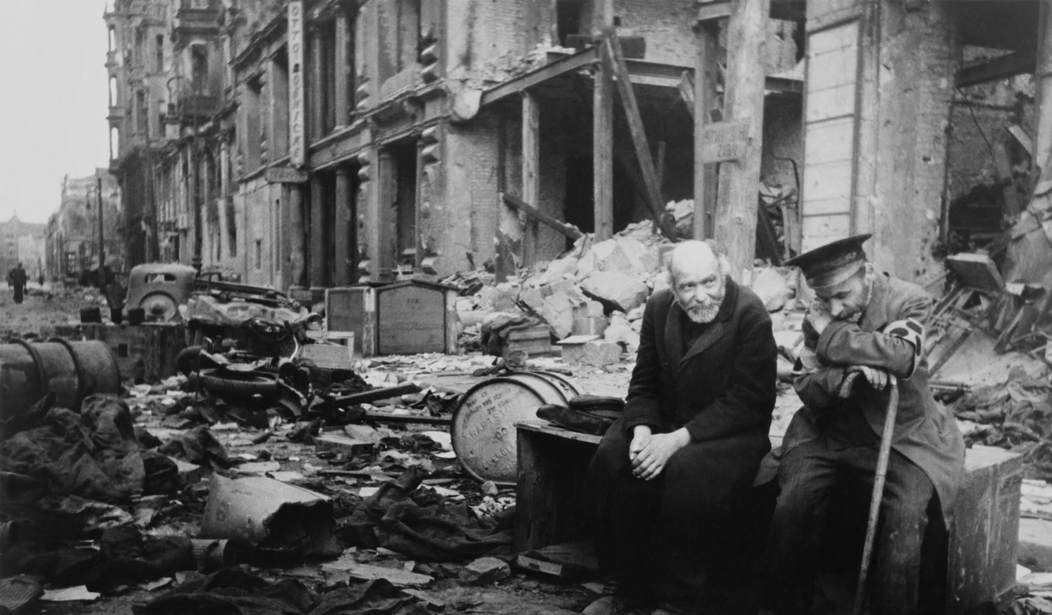While the US media’s attention remained focused on the presidential elections, developments in Syria continued to take a dramatic turn. Saudi Arabia announced “it was ready to participate in any ground operations in Syria if the U.S.-led alliance decides to start such operations.” Russia warned that Turkey might intervene to break the siege of Aleppo to save its clients from annihilation and prevent a renewed flood of refugees from taking the road to Europe.
Not only is the situation threatening to escalate, the Washington Post described the situation of the non-ISIS rebels in Aleppo as nearly catastrophic. Liz Sly and Zakaria Zakaria write: “Syrian rebels battled for their survival in and around Syria’s northern city of Aleppo on Thursday after a blitz of Russian airstrikes helped government loyalists sever a vital supply route and sent a new surge of refugees fleeing toward the border with Turkey.”
The loss of Aleppo, Syria’s largest city and the most significant urban center to fall, at least partially, under rebel control, would represent a potentially decisive blow to the nearly five-year-old rebellion against Syrian President Bashar al-Assad. The rebels have maintained control of much of Aleppo since they surged into the city in 2012, prompting U.S. intelligence assessments that they eventually would topple the government in Damascus.
So convinced was the Obama administration that the Russians would sink into a quagmire that it neglected to plan for a Putin success. What they believed to be impossible has come off, as Andrew Roth of the Washington Post explains. “After four months, Russia’s campaign in Syria is proving successful for Moscow … The Russian intervention has upended the Obama administration’s version of a negotiated settlement to the war, including an abdication by Assad. The opposition was hesitant to join talks this week in Geneva because of perceived backtracking from the United States on Assad’s future.”
Anne Barnard of the New York Times reports that the Syrian rebels in Geneva are in a funk and have packed their bags, “reflecting a growing foreboding among the opposition’s fighters and civilians, mirrored by growing hope on the government side, that Washington, interested only in bombing the Islamic State militant group, is ceding the field to Russia and leaving the opposition on its own.”
Yet if the destruction of ISIS were the administration’s goal it was failing miserably.
Far from triumphing against ISIS the administration is scrambling to contain it. The New York Times’s Eric Schmitt reports that the Pentagon “is being pressed by some of his national security aides, including his top military advisers, to approve the use of American forces in Libya to open another front against the Islamic State.”
“The White House just has to decide,” said one senior State Department official, who spoke on condition of anonymity to discuss internal deliberations. “The case has been laid out by virtually every department.”
The push for military action comes in response to growing concern over the Islamic State’s presence in Libya.
It is a request the president is likely to ignore. “Mr. Obama, wary of embarking on an intervention in another Muslim country, has told his aides to redouble their efforts to help form a unity government in Libya at the same time the Pentagon refines its options.” But with his diplomatic initiatives failing as badly as his masterful inactivity, as the collapse of the Geneva talks grimly illustrate, president Obama’s European allies are fighting for their lives amid a backlash against admitting a tide of refugees.
The former Time Magazine “Person of the Year” and candidate for the Nobel Peace Prize has experienced “a harsh reversal of fortune” as the Washington Post reports. “Angela Merkel is really in trouble.” Now, with Libya inexorably sliding into chaos at a time when Syria is metastizing the flood of refugees from Aleppo alone is likely to reach biblical proportions.
Syria is now a grim monument to a mad Western policy, made not the less insane by the fact that one of its chief architects is running for office to complete president Obama’s third term. What went off in Syria was the bomb of human stupidity, abetted by invincible hubris and accelerated by the unquenchable fire of fanatical dogmatism. The result was ruin.
None of it was necessary yet all of it was in one sense inevitable. Human beings inflict this on themselves every seventy years or so, forget, then do it again. How will it end? Soon, one can only hope.
Follow Wretchard on Twitter
Recently purchased by readers:
Cryptanalysis: A Study of Ciphers and Their Solution, A thorough, systematic introduction to serious cryptography, especially strong in modern forms of cipher solution used by experts. Nihilist, grille, U. S. Army, key-phrase, multiple-alphabet, Gronsfeld, Porta, Beaufort, periodic ciphers, and more. Simple and advanced methods. 166 specimens to solve — with solutions.
Destiny Betrayed: JFK, Cuba, and the Garrison Case Second Edition, This is a greatly revised and expanded version of the original book, including updates on all the topics it introduced back in 1992. Author James DiEugenio has used the declassification process of the Assassination Records Review Board (ARRB) to obtain the most current information on topics like the Garrison investigation and Clay Shaw; the newly exposed fallacies of the Warren Commission; U.S.-Cuban policy from 1957 to 1963; Kennedy’s withdrawal plan from Vietnam; Kennedy’s challenge to the Cold War consensus in 1961, and where those ideas originated; the ARRB medical inquiry demonstrating conspiracy and cover up; and the problems with the investigation of the Kennedy case.
Fireworks: A Gunsite Anthology, This is a collection of wild, hilarious, shocking and always meaningful tales from the remarkable life of an American firearms legend. Mount up and ride along with Jeff Cooper as he fights the Japanese in the Pacific, hunts giant Cape buffalo in Africa, recounts the exploits of such fighting men as Wild Bill Hickock and Medal of Honor winner Col. Herman Henry Hanneken and much more.
Recommended:
NightWatch: A Practical Guide to Viewing the Universe, NightWatch has been acclaimed as the best general interest introduction to astronomy. This latest edition’s improvements include a complete update of the equipment section, including computerized telescopes; an enlarged photography section, with how-to instructions for using the new generation of digital cameras for astronomical photography, both with and without a telescope; the tables of future solar and lunar eclipses, planetary conjunctions and planet locations, updated through 2025; star charts for use in the southern hemisphere; and new photographs showing the latest thrilling discoveries made by current space observatories and probes.
Did you know that you can purchase some of these books and pamphlets by Richard Fernandez and share them with your friends? They will receive a link in their email and it will automatically give them access to a Kindle reader on their smartphone, computer or even as a web-readable document.
The War of the Words, Understanding the crisis of the early 21st century in terms of information corruption in the financial, security and political spheres
Rebranding Christianity, or why the truth shall make you free
The Three Conjectures, reflections on terrorism and the nuclear age
Storming the Castle, why government should get small
No Way In at Amazon Kindle. Fiction. A flight into peril, flashbacks to underground action.
Storm Over the South China Sea, how China is restarting history in the Pacific
Tip Jar or Subscribe or Unsubscribe to the Belmont Club










Join the conversation as a VIP Member